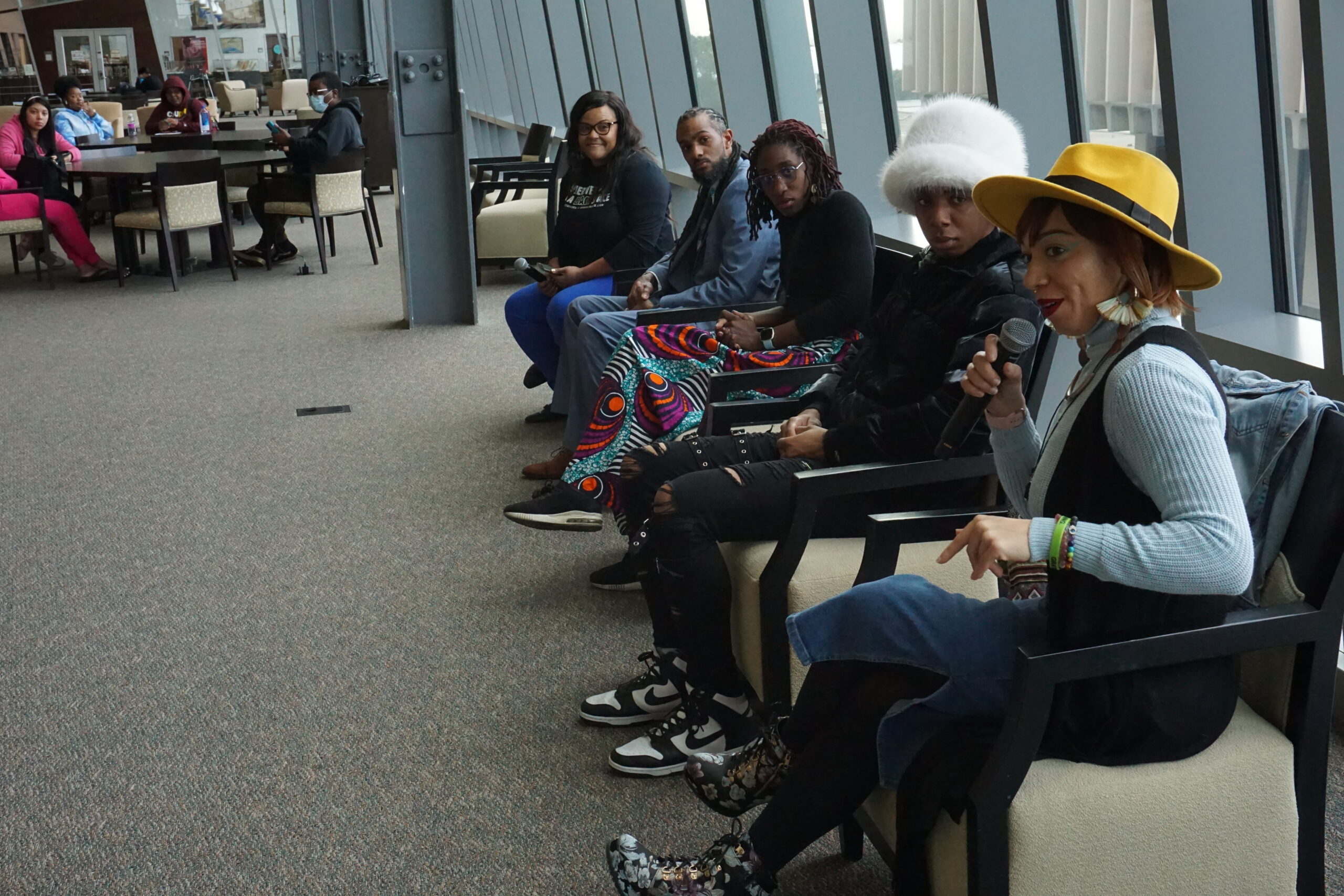A panel moderated by department chair Donna Nicol composed of Africana studies instructors and one student. CREDIT: Marcelo Maximilian
By Marcelo Maximilian Staff Reporter
The Africana studies department hosted the Martin Luther King Symposium event in the Loker Student Union that centered around a panel that spoke about African fashion.
The event was centered around a panel composed of current Africana studies professors Justin Gammage, Meryah Fisher and Tiearea Robinson, as well as the Africana studies department chair Donna Nicol and Africana studies student Jaquan Hurts.
The panelists were prompted with a list of questions to answer on the topic of fashion in relation to their Africana self-expression. “Every single day I try to wear something that’s Black-owned,” Fisher said.
Fisher was wearing Fenty Beauty makeup and a bright yellow brimmed hat from the Black-owned fashion company Kyra Danaya Collection. As an accessory, she also wore waist beads, an African women’s fashion accessory that dates back to ancient Egypt where they were originally intended to be worn in private.
Fisher described herself as an intellectual artist and said everything she wears reflects that. When asked how she defines her personal style and aesthetic, Fisher said, “I like to disrupt space, you can build yourself intellectually, without giving up your authenticity.” Fisher shared that she has what she calls “Crops for the Culture” days where she purposely wears crop tops that reveal her midriff to her lectures.
When asked how his style reflects his Blackness, Gammage said, “My dress reflects my political ideology.” He wore a full suit, dress shoes and a dress shirt made of Nigerian cloth.
Gammage began to explain that when wearing traditional African garb, many people confused about the purpose of him wearing it, called it a “costume.” Gammage said his clothing choices have been motivated by fatherhood. For example, he wants to teach his children to recognize what should be worn in a professional setting, so he always leaves for work in a suit.
Gammage, who wears his hair in locs, remembers being told that he should consider cutting his hair in his earlier days of seeking employment. The African natural hair discussion continued as Robinson, who also wears her hair loc’d, spoke on her hair journey and how length does not equate to beauty.
The panelists began to chime in by describing the items they have purchased and are wearing from Black businesses, and the importance of specifically only purchasing African items from Africans.
“It went from a panel to a discussion, everybody has different experiences of why they wear what they wear, and when they deem it appropriate,” said attendee Ayana Council, an Africana studies major.

